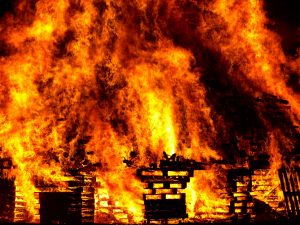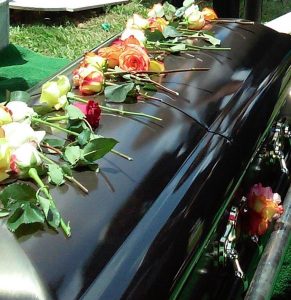 When the American government goes to war, it needs a ton of supplies for support. Well, what happens when those supplies get used and need to be destroyed? They burn it. The American military used large burn pits to destroy huge amounts of waste. The types of waste disposed of in a burn pit can include chemicals, plastics, oil, human and medical waste, explosives, dead animals, tires, and are burnt for hours creating toxic fumes. These burn pits are used at military bases all over the world in countries like Iraq, Afghanistan, Syria, and Djibouti, Africa.
When the American government goes to war, it needs a ton of supplies for support. Well, what happens when those supplies get used and need to be destroyed? They burn it. The American military used large burn pits to destroy huge amounts of waste. The types of waste disposed of in a burn pit can include chemicals, plastics, oil, human and medical waste, explosives, dead animals, tires, and are burnt for hours creating toxic fumes. These burn pits are used at military bases all over the world in countries like Iraq, Afghanistan, Syria, and Djibouti, Africa.
Toxins from the burn pit smoke created long-term adverse health effects for our U.S. Soldiers and the American contractor employees working alongside them. Exposure to burn pit toxins have caused serious diseases such as constrictive bronchitis, a disease of the respiratory system, and even cancer, and can even lead to death. Our military veterans who developed these diseases filed suit to hold the American contractor companies liable, but the U.S. Supreme Court dismissed that case. Now, the Department of U.S. Veterans Affairs has a burn pit registry where U.S. veterans and service members can report their health concerns, but what about the American contractor workers? Where can they go to get help? Our firm.
The Defense Base Act, an extension of the Federal Longshore and Harbor Worker’s Compensation Act, provides coverage benefits for injured workers with adverse health effects caused by exposure to burn pit toxins and fumes. This firm files for medical care and lost wages and survivor benefits in case of a death. We recognize that a certain number of workers have passed away or developed cancer from these toxic fumes. The adverse health effects caused by the toxic fumes are classified as occupational diseases. A claim for a disability due to these occupational diseases must be filed within two years from the time the employee became aware of the relationship between the disease and his or her employment overseas. This usually means within 2 years of when a doctor diagnoses the condition.
 Florida Injury Attorneys Blog
Florida Injury Attorneys Blog




